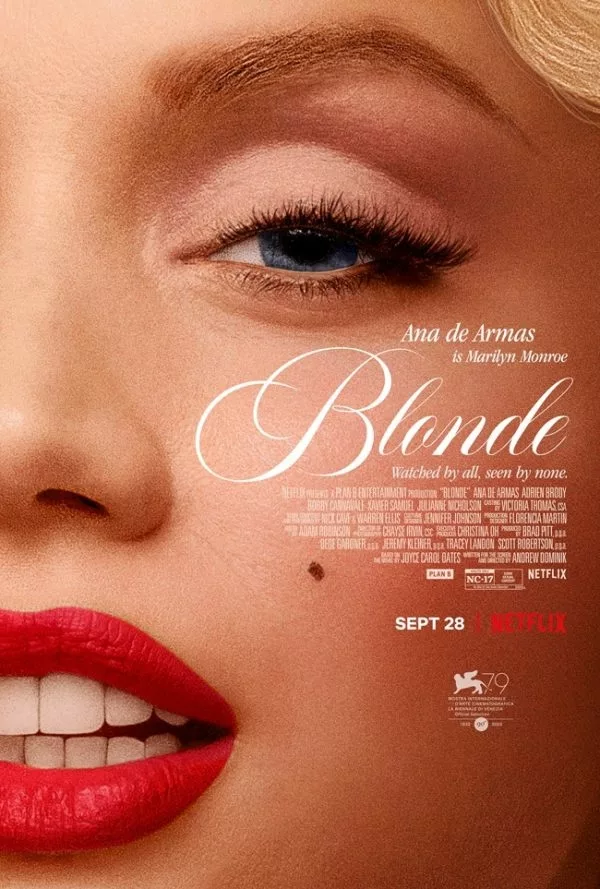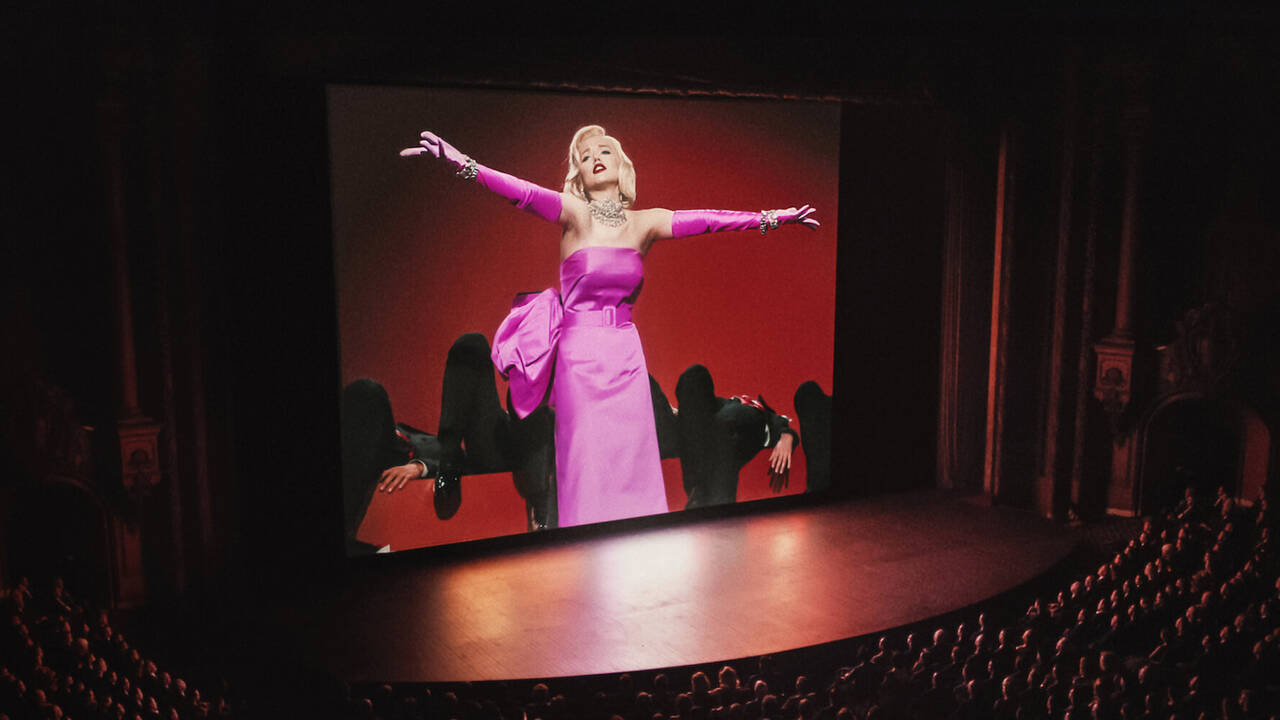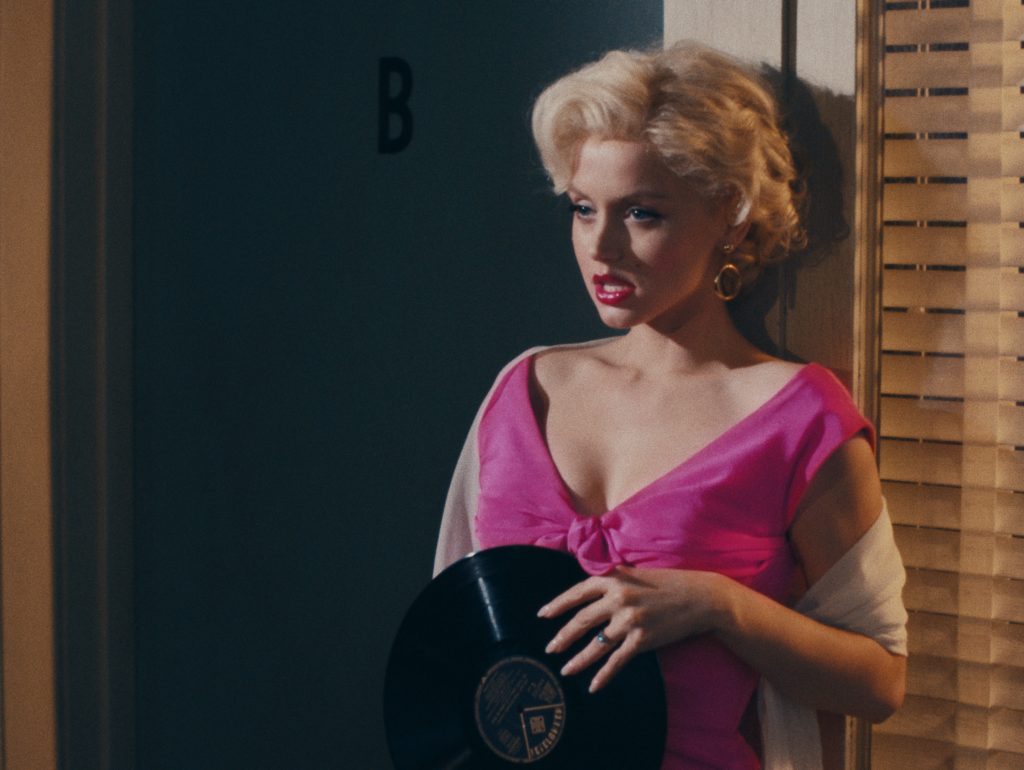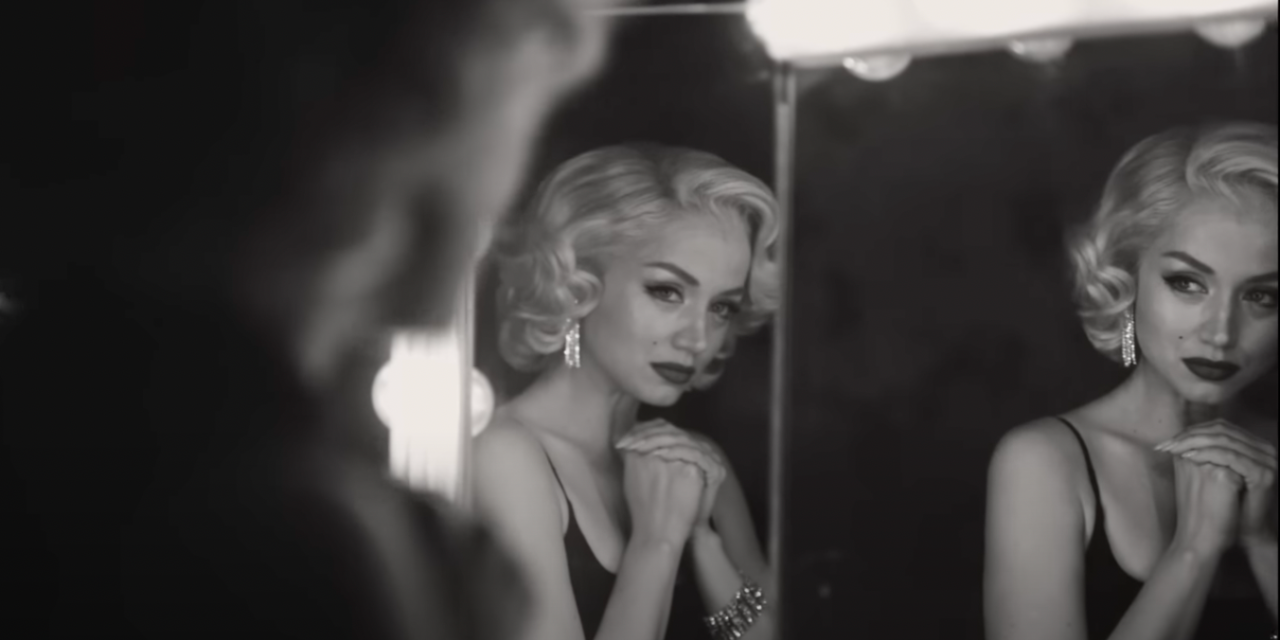
By many accounts, the actor born Norma Jean Baker was a far more shrewd and intelligent person than her roles under her more known stage name Marilyn Monroe and her frequently bubbly film roles implied. She was ambitious on the business side, one of the first women to set up her own production company in the 1950s. She was known for having a sharp sense of humor, being a lover of highbrow literature, and just being a really charismatic performer.
There was the story of her helping Ella Fitzgerald get booked in a popular nightclub against the discrimination of her era. So why doesn’t Netflix’s new movie Blonde focus on any of this, as opposed to just sticking her on a misery train, and making a beloved icon into only a sad victim?

There’s been an uptick in Monroe-based material lately. I suspect a bit of that true crime wave has sparked an interest in her tragic early death, and at least two major documentaries have been released about her recently. This new film written and directed by Andrew Dominik is based on a controversial fictionalized account of Marilyn’s life by Joyce Carol Oates.
And as you’d expect, questionable material leads to some questionable adapting. Through his direction, Dominik turns up the heat on our protagonist- literally and figuratively, as the movie begins with the young Norma (Lily Fisher) and her mother Gladys (Julianne Nicholson) dealing with not just Gladys’ mental health issues, but also Californa wildfires.
As an adult, she navigates her way through Tinseltown and struggles to be taken seriously as an actor, auditioning for what are some of her noted and underrated dramatic turns. But she becomes a star according to this movie a good deal in part because the studio heads like her look. Her image was of course a huge factor in her cultural appeal, but much of that is because of how she owned her sexuality on the screen. And it’s funny because the lead performance as Monroe by Ana de Armas here is damn good. In fairness, there are points where she legit does capture her trademark vibe.
Yet much of her performance has her expressing Marilyn’s continued anguish- heartbreaks, her mother now confined to a hospital and suffering from memory problems, getting shamed on casting couches by sleazy executives, and the forced loss of multiple children due to career obligations against her will. Here’s where that much-talked-about NC-17 rating comes into play because Dominik depicts some of these sequences in incredibly graphic, unsettling “bro, WTF?” manners. And I think I get the intent- this whole movie is supposed to be a searing, furious indictment of pre-Me Too era Hollywood, and for the audience to think “wasn’t it so awful back then?” (As if some of the recent Hollywood scandals these days are sunshine and hugs.)

Throughout the movie see Monroe’s various relationships with the likes of Charlie Chaplin and Edward G. Robinson’s sons (Xavier Samuel and Evan Williams), a character known as “The Ex-Athlete” Bobby Cannavale), one dubbed “The Playwright” (Adrien Brody), and “The President” (Caspar Phillipson). I’ll just spoil it now: it’s Joe DiMaggio, Arthur Miller, and John F. Kennedy.
And at least four out of these five dudes, at various points in the story, wind up doing Marilyn dirty in some fashion. My inner sports fan feels lucky that as a Cardinals guy, there aren’t any real salacious stories about Stan Musial, because if you’re a New York Yankees fan, in spite of Cannavale’s good performance, Blonde’s version of DiMaggio is gonna hurt you. And the Jack Kennedy stuff is just, ewww.
So of course, every halfway decent biopic is going to look into the trials and tribulations of its subject. But let’s take Baz Luhrmann’s recent Elvis movie as an example- that film depicted some of Presley’s hardships, but this was also balanced out by displaying how he developed his art, how much performing would electrify him, etc. In Blonde, any sense of joy Marilyn is allowed winds up being fleeting as the rug is constantly yanked from under her. If we could have gotten some of those elements or side stories I mentioned earlier, it could have at least brightened things up a little.

Now as excessive as this movie can get in depicting Norma’s mental breakdown, there are parts where it does feel like a solid psychological thriller. Yet sometimes that gets tripped up by how over-the-top some of the editing and framing of these scenes are. One example is when Norma, still scarred from a recent miscarriage, has to work with her assistant to basically “summon” the Marilyn persona for the premiere of her next feature.
On one hand, it’s effective in how trapped Norma feels within her public image. But then as she’s walking down the red carpet, the guys in the crowd are gawking at her and all of a sudden their mouths start getting all CGI-distorted like they’re these troll monsters trying to grab at her. Then before the movie starts on the screen, the music gets all weird and almost dubstep-ey. This is the point where I started laughing. I’m thinking “are you about to drop the bass all of a sudden? Is DJ Monroe about to tear the roof off the club?”

Overall, there are a few aspects aesthetically I did appreciate about Blonde, it visually does try to take interesting risks. But a nice music video aura isn’t going to help you if the story doesn’t seem satisfying. The movie just tries way too hard to scream at us “feel sorry for her more!” And just by a little basic research into Marilyn Monroe’s life, that’s not hard. But this movie is way too focused on being an edgy horror movie to put together a satisfying arc for her.
If you want a more enjoyable experience involving her, I’d just go back and watch Some Like It Hot again, because at least onscreen, she’s actually inviting us to have some fun and make us smile. This new Netflix movie, despite a very impressive performance by Armas, felt like a chore to sit through because eventually, I was feeling pretty “goodbye Norma Jean” halfway through this, and not in the Elton John way either. But what was your feeling on it? If you’ve streamed it, let us know your take on it at FAN on Twitter or Facebook!
